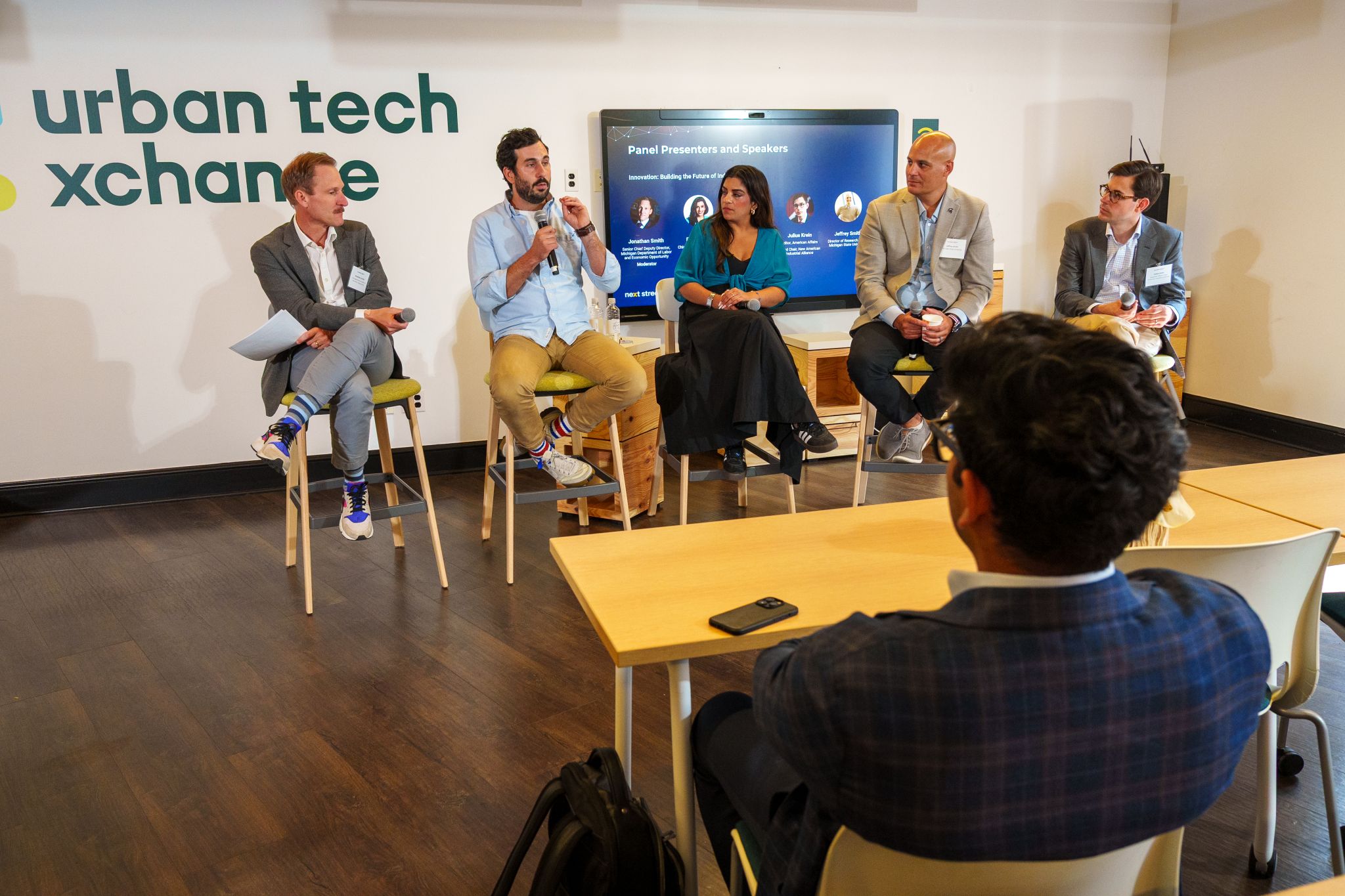Next Street’s Industrial Supply Chain Forum recently brought together public- and private-sector leaders for an event in Detroit convened ahead of Reindustrialize 2025, a key gathering of technology and manufacturing innovators. It took place against the backdrop of the most profound transformation in American manufacturing in generations—one with significant implications for small and mid-sized manufacturers. We’re excited to share the full-length, two-part panel discussions, as well as key takeaways in case you missed the event.
Key Takeaways
Panel 1: Adaptation – Modernizing the Legacy Manufacturing Base
- Manufacturers face deep uncertainty—but are actively adapting. Tariffs, technological changes, and global supply chain shifts are forcing manufacturers to become more agile. Small and mid-sized firms are adapting by renegotiating customer contracts, reevaluating supplier relationships, and adopting more flexible manufacturing and business processes, all while managing capital constraints and tight labor market conditions.
- Digital transformation is no longer optional. Panelists emphasized that manufacturing is increasingly a technology-driven industry. To remain competitive and future-ready, manufacturers must view themselves as digital organizations, adapting their business models, culture, and operations around automation and industrial AI.
- Manufacturing support ecosystems must be accessible and peer driven. Manufacturers trust other manufacturers. An effective support ecosystem includes peer-to-peer networks, industry-specific technical assistance, access to digital tools, and workforce development programs that meet businesses and workers where they are.
- National strategy and vision are needed. The panel concluded by urging U.S. policymakers to establish a consistent national direction—one that strengthens domestic manufacturing to drive economic innovation and inclusion. Without certainty in trade and industrial policy, small manufacturers will continue to face challenges in planning and making long-term investments.
Panel 2: Innovation – Building the Future of Industry
- Michigan’s manufacturing legacy is a competitive asset. In a place like Michigan, the region’s deep bench of skilled labor, engineering talent, and production infrastructure makes it an ideal launchpad for hard tech startups, especially in advanced manufacturing, battery technology, and mobility sectors.
- The industrial moment is here—don’t miss it. A growing national and investor movement is driving momentum in manufacturing and supply chain innovation. To seize this opportunity, the U.S. must build institutional capacity and articulate a clear strategic vision—or risk ceding another industrial wave to global competitors.
- Policy design must match urgency with execution. Panelists called for more coherent industrial policy, including tariffs that support domestic supply chains and development finance tools to de-risk investment.
- Scaling hard tech requires patient, layered capital. Traditional venture models are often ill-suited for capital-intensive industries. Founders emphasized the need for a capital stack that combines non-dilutive public funding, institutional private equity, and non-traditional sources like family offices—alongside more strategic use of tools like tax credits.
Special thanks to our moderators and speakers:
- Andi Crawford, moderator (Chief Revenue Officer, Next Street)
- Deeana Ijaz (Chief Strategy Officer, Our Next Energy)
- Lisa Lunsford (Chief Executive Officer, GS3 Global and Board Chair, MichAuto)
- Julius Krein (Editor, American Affairs Journal and Chairman, New American Industrial Alliance)
- Justin Kosmides (Co-Founder and Chief Executive Officer, Bloom)
- Meghan MacDonald (Vice President, Motor & Equipment Manufacturing Association)
- Pavan Muzumdar (Chief Operating Officer, Automation Alley)
- Jeffrey Smith (Director of Research Parks, Michigan State University)
- Jonathan Smith, moderator (Senior Chief Deputy Director, Michigan Department of Labor and Economic Opportunity)
Learn more
- Newsletter: If you’re interested in this subject matter, sign up for the Industrial Supply Chain newsletter here
- Work with us: If your organization would like to work with Next Street on opportunities related to the industrial supply chain and how it can benefit small and mid-sized businesses, please contact Andi Crawford
